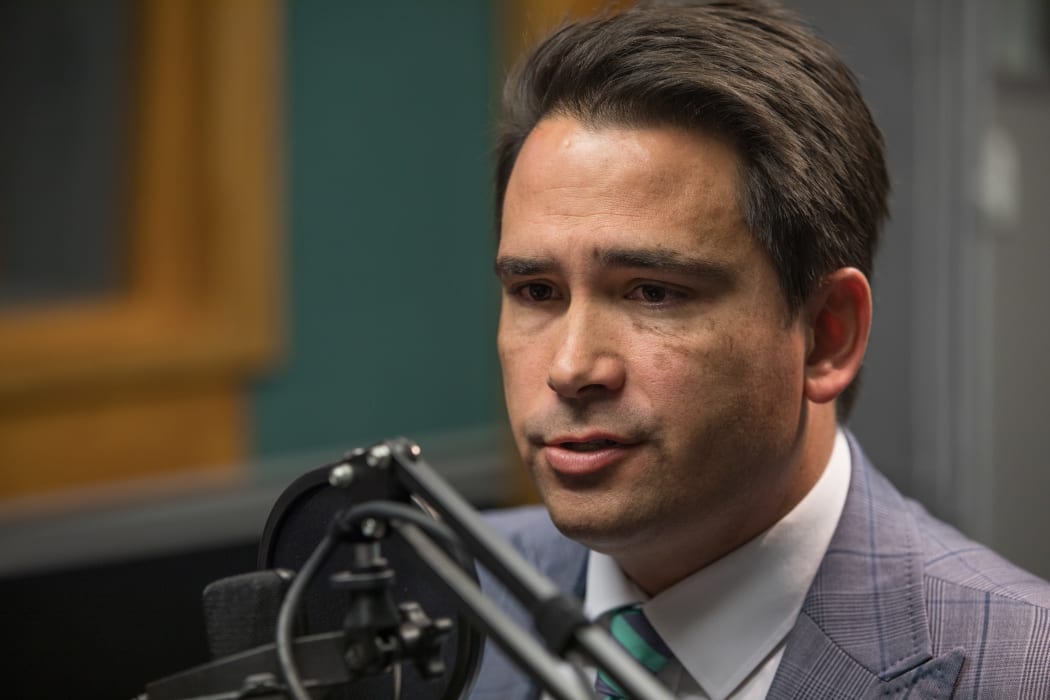While the government is working through plans to hold a referendum on legalising cannabis at or before the 2020 election, Simon Bridges says he would probably vote against it.

Photo: RNZ / Cole Eastham-Farrelly
Mr Bridges told Morning Report while everyone can agree there needs to be a clamp down on dealers and suppliers, he doesn't believe the government is doing enough in regards to rehabilitation and is critical of the medicinal cannabis bill being passed.
The legislation lays the groundwork for a medicinal cannabis industry with regulations to be in place within a year.
The bill will introduce a statutory defence - or amnesty - as a stop-gap measure to allow people at the end of their lives to use illicit cannabis while the scheme is still being established.
"This is the most progressive legislation that has ever been passed through this House for the supply and access to medicinal cannabis products," Health Minster David Clark said.
"It's about cultivation, cannabidiol and compassion, I'm very proud to commend this bill to the House," he said.
"People nearing the end of their lives should not have to worry about being arrested or imprisoned for trying to manage their pain. So as a compassionate measure we are also creating a statutory defence for people eligible to receive palliation so that they can use illicit cannabis without fear of prosecution."
Officials will seek feedback next year on how the scheme should operate and would develop quality standards alongside experts.
But Mr Bridges said this is already defacto decriminalisation.
"Medicinal cannabis, they've gone loose leaf, that's not medicinal cannabis, that is decriminalisation by the back door."
He said it means police will look at all of the other options before prosecuting.
"Surely if you take that view on drugs we should have a debate, we should have a discussion, we should have a referendum."
A referendum is part of Labour's confidence and supply agreement with the Green Party. It specified that a referendum would be held but not that the law would change if the public voted in favour.
The jury is still out on whether it will be binding but details including timing, the nature of the process and the question people will vote on, will be announced by Andrew Little before Christmas.
New Zealand First leader Winston Peters said his party's view was the vote should be binding but would not indicate which way he would vote.
Green MP Chloe Swarbrick said the party's preferred model is to do something similar to the MMP referendum in 1993, meaning regulation around the legislation would be implemented if the vote was positive.
But, Mr Bridges told Morning Report what's the point of a referendum in a few years if you've already got meth on the streets and the police know the government's position is not to prosecute.
"What you have now is a situation with a so-called medicinal cannabis bill, that is actually defacto decriminalisation from instructions to the police effectively saying, let's go there without the debate, without thinking it through.
"I don't think the government has at any level thought through what this means for the police, the health services, and wider society."
He said he accepts the need for a cannabis referendum but said he is "pretty sure" he would personally vote against it.
"I worry about the harm, I see the debilitating effects in all manner of communities, I worry about the mental health and I think the messaging of saying 'look decriminalisation, no issue in term of harm' will mean harm rises."
Meanwhile, he said he thinks the National Party has set the agenda for politics in New Zealand this year.





